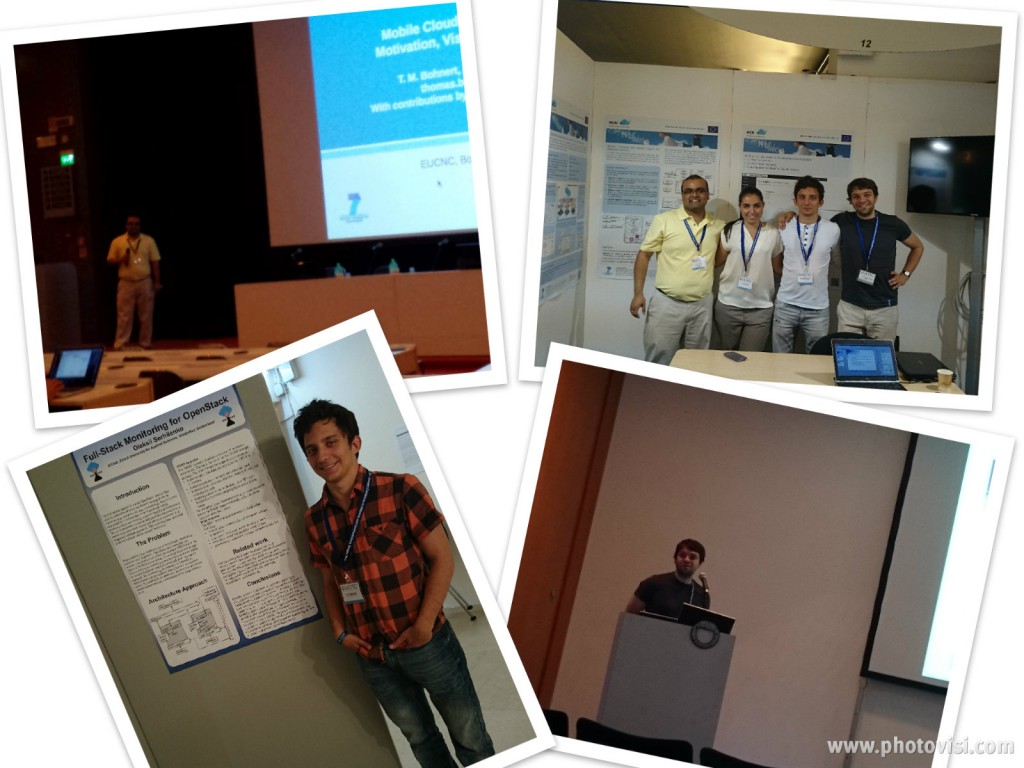Last week, the European Conference on Networks took place in Bologna Italy at the Palazzo della Cultura e dei Congressi. The Conference was having a strong focus on 5G (5th generation wireless systems) technologies and how 5G will affect the technological foundation and as well the social aspects. The impact of 5G to the society was often mention and discussed in the various panels and talks. The explanations, what impact 5G to social aspects and the society will have in the future, were all more a rational to constitute the rise of the amount of the bandwidth that 5G will bring. The almost incredible amount of bandwidth and the extreme low latency will offer a new spectrum of mobile applications – especially in the area of real-time applications.
But not all people do share this vision 5G. Benoit Charbonnier from Orange Labs has the opinion, that the only way to reduce the energy consumption efficiently is by reducing the bit-rate. The FP7 project Fabulous FDMA PON is focusing on offering 1Gbit/s internet connection to the home by reducing the amount of energy by a factor of 40-50. In contrast to this, the European Commission is focusing on 10-20 Gbit/s to the home that means, that the EC is more focusing on higher bit-rates then on lowering the energy consumption. Takaharu Nakamura, Sub-Leader of ARIB 2020 and Beyond AdHoc from Fujitsu was the only panelist who pointed out, that there are a lot of people in the world who cannot benefit from the impact of 5G to the society due to the lack of missing knowledge or infrastructure by the end-users. Wen Tong, Wireless CTO from Huawei showed the company’s strategy along 5G technology enablement and showed on one slide, that SDN was the birth-bed for the 5G technology foundation. The flexibility and on-demand fashion promised by 5G is not possible without a programmable network and open standards he said in his keynote. The most important role of SDN within the 5G ecosystem is the implementation of NFV and Cloud Computing. In order to challenge the three important angels in 5G that are:
- Bandwidth maximization
- Delay optimization
- Link amount
NFV, SDN and Cloud Computing will become an important role to achieve all this at the same time. The ICCLab itself was present in several areas at the conference:
- Mobile Cloud Networking – Workshop and Booth
- T-NOVA – Special Session with NetIDE
- Full Stack Monitoring in OpenStack – Poster Session
The MCN project conducted a half day workshop by showing their work in progress and how far they already are in the project. The MCN workshop was chaired by Piyush Harsh from the ICCLab and ended with a short but interesting panel discussion about the importance of standards in the research area NFV. At the MCN-Booth, there were Demonstration videos that showed, what is already achieved like the virtualization of the Evolved Packet Core EPC provided through the openSDNCore running in the ICCLab test-bed or the Rating Charging Billing solution presented by Tea Kolevska from the ICCLab.
In the special session on how to program a SDN enabled network, Pedro Andres Aranda Gutierrez from Telefonica and Philipp Aeschliman from the ICCLab presented two different approaches from their corresponding projects NetIDE and T-NOVA. The main focus of the NetIDE project is to create a Development Stack that makes it easier for new SDN developers to start with OpenFlow and run their application on top of different controllers. The SDK4SDN that is part of the T-NOVA project, presented the vision and how the prototype does work at the current state.
The Full Stack Monitoring approach in OpenStack, which is part of the new Icehouse release, introduced and the developed by the ICCLab, was presented by Oleksii Serhiienko who also implemented most of the features in OpenStack.
